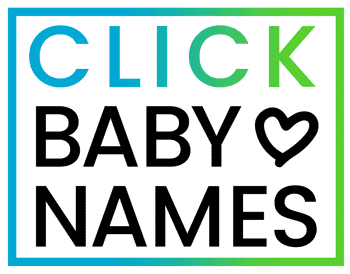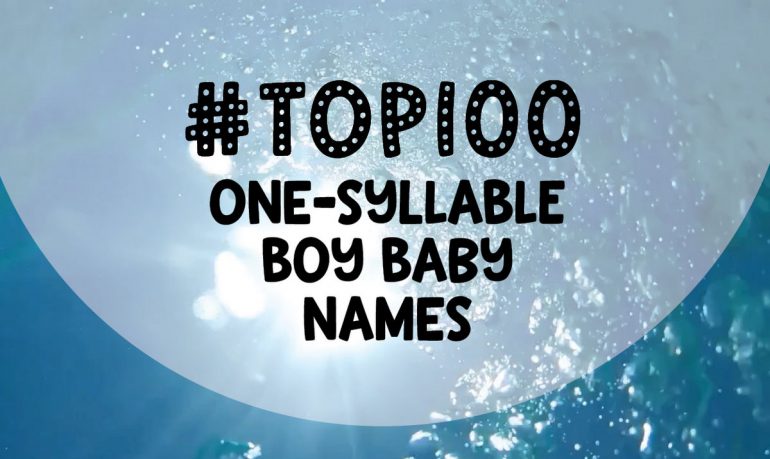Short stuff: One-syllable baby names for boys
Sometimes, all you need is a short word — a single-syllable name to use as your baby’s first name, as just a part of his first name, or as a middle name. You might be trying to match a sound, or give his full name a certain rhythm that needs just one more sound.
Here, in alphabetical order, we present you with more than 170 short and to-the-point baby names suitable for a baby boy.
ALSO SEE: 100 one-syllable girl baby names | 100 two-syllable boy baby names
List of 174 1-syllable boy baby names
- Art: Often a short form of “Arthur.”
- Bear: Animal-inspired, strong and rugged.
- Beau: French origin, means “handsome.”
- Blake: Old English origin, means “dark” or “fair.”
- Blaine: Gaelic origin, means “yellow.”
- Blaise: Latin origin, means “stutter” or “lisp.”
- Blaze: Modern, inspired by the word “blaze.”
- Blue: Color-inspired, modern and unique.
- Bo: Scandinavian origin, means “to live.”
- Boone: French origin, means “a blessing.”
- Brant: German origin, means “firebrand.”
- Brock: Old English origin, means “badger” or “stream.”
- Brooks: Nature-inspired, refers to a small stream.
- Bruce: Scottish origin, from the place name “Brix.”
- Bryce: Celtic origin, means “swift.”
- Cade: Old English origin, means “barrel.”
- Cal: Often a short form of “Calvin.”
- Cale: Modern, possibly a variant of “Kyle.”
- Carl: German origin, means “free man.”
- Cash: Modern, often associated with money or a nickname for “Cassius.”
- Chance: English origin, means “fortune.”
- Chad: Old English origin, means “warrior” or “protector.”
- Charles: French origin, means “free man.”
- Chase: English origin, means “to hunt.”
- Chet: Often a short form of “Chester.”
- Chris: Often a short form of “Christopher” or “Christian.”
- Clark: Old English origin, means “clerk” or “scholar.”
- Clay: Nature-inspired, named after the earth material.
- Cliff: Nature-inspired, refers to a steep rock face.
- Cole: Old English origin, means “swarthy, coal-black.”
- Craig: Scottish origin, means “rock” or “crag.”
- Cruz: Spanish origin, means “cross.”
- Dale: Old English origin, means “valley.”
- Dan: Often a short form of “Daniel.”
- Dane: English origin, means “from Denmark.”
- Dave: Usually a short form of “David.”
- Dean: Old English origin, means “valley.”
- Drake: English origin, means “dragon.”
- Drew: Often a short form of “Andrew.”
- Duke: Latin origin, means “leader.”
- Earl: Old English origin, means “nobleman” or “warrior.”
- Finn: Irish origin, means “white” or “fair.”
- Flint: Nature-inspired, refers to a type of rock.
- Flynn: Irish origin, means “son of the red-haired one.”
- Ford: Old English origin, means “river crossing.”
- Frank: Often a short form of “Franklin” or “Francis.”
- Fred: Usually a short form of “Frederick.”
- Gabe: Often a short form of “Gabriel.”
- Gage: Old French origin, means “measure.”
- Gene: Often a short form of “Eugene.”
- George: Greek origin, means “farmer.”
- Glen: Scottish origin, means “valley.”
- Glenn: Variant of “Glen,” also means “valley.”
- Grant: French origin, means “great” or “large.”
- Gray: Color-inspired, refers to the color gray.
- Greg: Often a short form of “Gregory.”
- Grey: Variant of “Gray,” also color-inspired.
- Guy: Old French origin, means “guide.”
- Hank: Often a short form of “Henry.”
- Hans: German form of “John,” means “God is gracious.”
- Heath: Old English origin, means “wasteland.”
- Holt: Old English origin, means “forest.”
- Hugh: German origin, means “mind, intellect.”
- Jace: Modern, often a short form of “Jason.”
- Jack: Often a short form of “John.”
- Jake: Usually a short form of “Jacob.”
- James: Hebrew origin, means “supplanter.”
- Jay: Nature-inspired, named after the bird.
- Jean: French form of “John.”
- Jeff: Often a short form of “Jeffrey.”
- Jim: Usually a short form of “James.”
- Joe: Often a short form of “Joseph.”
- Joel: Hebrew origin, means “Yahweh is God.”
- John: Hebrew origin, means “God is gracious.”
- Josh: Usually a short form of “Joshua.”
- Jude: Latin origin, means “praised.”
- Kai: Hawaiian origin, means “sea.”
- Kane: Irish origin, means “battle.”
- Kemp: Old English origin, means “athlete, warrior.”
- Kent: Old English origin, from a place name.
- Kier: Possibly a variant of “Kieran,” means “dark-haired.”
- Kip: Old English origin, means “pointed hill.”
- Kirk: Scottish origin, means “church.”
- Knox: Old English origin, means “round hill.”
- Kurt: German origin, means “courteous.”
- Kyle: Scottish origin, means “narrow.”
- Lance: German origin, means “land.”
- Lane: Old English origin, means “path.”
- Lee: Old English origin, means “meadow.”
- Leif: Scandinavian origin, means “heir” or “descendant.”
- Leigh: Variant of “Lee,” also means “meadow.”
- Lloyd: Welsh origin, means “gray.”
- Luke: Greek origin, means “from Lucania.”
- Lyle: Old French origin, from the island of Lille.
- Mac: Often a short form of names starting with “Mac-” or “Mc-.”
- Mack: Variant of “Mac,” also often a short form of names starting with “Mac-” or “Mc-.”
- Mark: Latin origin, means “warlike.”
- Matt: Often a short form of “Matthew.”
- Max: Usually a short form of “Maxwell” or “Maximilian.”
- Mike: Often a short form of “Michael
- Miles: Latin origin, means “soldier.”
- Mitch: Often a short form of “Mitchell.”
- Moe: Usually a short form of “Morris” or “Moses.”
- Nash: Old English origin, means “at the ash tree.”
- Nate: Often a short form of “Nathan” or “Nathaniel.”
- Neal: Variant of “Neil,” means “cloud” or “champion.”
- Neil: Irish origin, means “cloud” or “champion.”
- Nick: Often a short form of “Nicholas.”
- Noel: French origin, means “Christmas.”
- Owen: Welsh origin, means “young warrior” or “well-born.”
- Paul: Latin origin, means “small” or “humble.”
- Penn: Old English origin, means “enclosure” or “hill.”
- Pete: Usually a short form of “Peter.”
- Phil: Often a short form of “Philip.”
- Pierce: English origin, means “rock.”
- Quinn: Irish origin, means “descendant of Conn.”
- Ralph: Old English origin, means “wolf counsel.”
- Ray: Often a short form of “Raymond.”
- Reed: English origin, means “red” or “red-haired.”
- Reese: Welsh origin, means “enthusiasm.”
- Reid: Variant of “Reed,” also means “red.”
- Rex: Latin origin, means “king.”
- Rhett: Dutch origin, means “advice.”
- Rhys: Welsh origin, means “enthusiasm.”
- Rick: Often a short form of “Richard.”
- Rob: Usually a short form of “Robert.”
- Rod: Often a short form of “Roderick.”
- Roger: Germanic origin, means “famous spear.”
- Ron: Often a short form of “Ronald.”
- Ross: Scottish origin, means “peninsula.”
- Roy: French origin, means “king.”
- Russ: Often a short form of “Russell.”
- Rye: Nature-inspired, named after the grain or the plant.
- Ry: Modern, often a short form of names like “Ryan.”
- Sam: Often a short form of “Samuel.”
- Saul: Hebrew origin, means “asked for, prayed for.”
- Scott: Scottish origin, means “from Scotland.”
- Sean: Irish form of “John,” means “God is gracious.”
- Seth: Hebrew origin, means “appointed, placed.”
- Shane: Irish form of “John,” means “God is gracious.”
- Shaun: Irish form of “John,” means “God is gracious.”
- Shawn: Variant of “Sean,” also means “God is gracious.”
- Sid: Often a short form of “Sidney.”
- Sky: Nature-inspired, refers to the sky.
- Spike: Modern, often a nickname.
- Stan: Usually a short form of “Stanley.”
- Steve: Often a short form of “Steven” or “Stephen.”
- Stone: Nature-inspired, refers to rock.
- Tad: Often a short form of “Thaddeus.”
- Tate: Old English origin, means “cheerful.”
- Teague: Irish origin, means “poet” or “philosopher.”
- Ted: Usually a short form of “Theodore.”
- Tim: Often a short form of “Timothy.”
- Todd: Old English origin, means “fox.”
- Tom: Usually a short form of “Thomas.”
- Trace: English origin, means “from Thracia.”
- Trent: Latin origin, means “gushing waters.”
- Trey: Latin origin, means “three.”
- Troy: Greek origin, named after the ancient city of Troy.
- Ty: Often a short form of “Tyler” or “Tyson.”
- Van: Old Norse origin, means “from.”
- Vance: Old English origin, means “fen.”
- Vaughn: Welsh origin, means “small.”
- Vic: Usually a short form of “Victor.”
- Vince: Often a short form of “Vincent.”
- Wade: Old English origin, means “to go.”
- Walt: Usually a short form of “Walter.”
- Wayne: Old English origin, means “wagon maker.”
- Wes: Often a short form of “Wesley.”
- West: Direction-inspired, refers to the western direction.
- Will: Often a short form of “William.”
- Wynn: Old English origin, means “friend.”
- Zack: Usually a short form of “Zachary.”
- Zane: Hebrew origin, means “God’s gracious gift.”
ALSO SEE: 100 two-syllable boy baby names | 100 one-syllable girl baby names
Old-school baby name advice
Back in 1937, here’s what the magazine Literary Digest had to say about choosing one-syllable names for baby boys.
If the surname (last name) has one syllable, avoid a one-syllable first name. Example: Montgomery Smith rather than John Smith.
With a two-syllable last name, use either a one-syllable name or three-syllable first name. John Hinton or Christopher Hinton, rather than Arthur Hinton.
When the last name has three syllables, either use a one- or two-syllable name. George Doughtery, but not Alexander Dougherty. Avoid overlapping consonants, such as with James Stephens.





